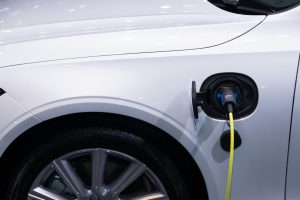Hybrid vs. Electric: Which Makes More Sense in 2025?
In the past few years, the automotive industry has seen a surge in the development and production of hybrid and electric vehicles. With rising concerns about climate change and the increasing demand for eco-friendly alternatives, it is no surprise that these types of vehicles have gained popularity. However, as we look towards the future, it begs the question – which one makes more sense in 2025? In this article, we will delve into the differences between hybrid and electric vehicles and determine which one holds more promise in the year 2025.
The Rise of Hybrid and Electric Vehicles
Before we can fully understand which vehicle is a better option for 2025, let’s first understand the difference between the two. A hybrid vehicle combines the use of both a traditional internal combustion engine and an electric motor. On the other hand, an electric vehicle (EV) relies solely on an electric motor and does not use any form of fossil fuel. Both types of vehicles have made significant strides in their development and popularity in recent years.
The Advantages of Hybrid Vehicles
One of the biggest advantages of hybrid vehicles is that they still use a traditional engine, which means they do not need to be charged like electric vehicles. This eliminates the need to search for charging stations, making it a more convenient option for those who travel long distances. Additionally, hybrid vehicles use regenerative braking, which allows them to recharge their batteries while driving and has proven to increase fuel efficiency.
The Advantages of Electric Vehicles
On the other hand, electric vehicles have significantly lower emissions compared to traditional gasoline-powered vehicles. This makes them a much more environmentally friendly option. They also tend to have lower operating costs, as electricity is generally cheaper than gasoline. With the continued development of technology, the range of electric vehicles is also increasing, making them a viable option for long-distance travel.
The State of the Market in 2025
As we look towards 2025, it’s no surprise that the demand for alternatives to gasoline-powered vehicles will continue to rise. The International Energy Agency predicts that by 2025, electric vehicles will represent at least 30% of all vehicles sold globally. This demand will lead to a decrease in prices, making electric vehicles more accessible to the general population.
The Impact on the Environment
The adoption of electric vehicles has the potential to significantly reduce greenhouse gas emissions. In fact, according to the Environmental Protection Agency, electric vehicles produce significantly fewer emissions than gasoline vehicles, even when taking into account the emissions from electricity production. With a greater percentage of electric vehicles on the road, it can lead to a significant decrease in pollution and carbon emissions.
The Future of Hybrid and Electric Vehicles
Both hybrid and electric vehicles have their unique advantages and will continue to play a significant role in the automotive industry. However, as technology advances and the demand for eco-friendly options increases, it is clear that electric vehicles will hold more promise in 2025. With the development of more efficient batteries, better charging infrastructure, and potential government incentives, electric vehicles are well on their way to becoming the preferred option for consumers.
In Conclusion
The debate between hybrid and electric vehicles will continue to rage on, but one thing is for sure – the future is electric. With a clearer understanding of the advantages and disadvantages of both types of vehicles, it’s evident that electric vehicles are the way forward. As we move towards 2025, we can expect to see a significant increase in the number of electric vehicles on the road, reducing emissions and providing a greener and more sustainable future for generations to come.











